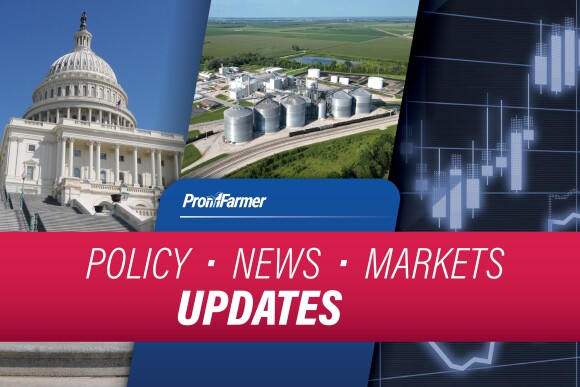Policy Update
Yesterday, the U.S. fertilizer lobby released a statement urging federal leaders to prioritize and accelerate the growth of domestic fertilizer production, which could stabilize input costs for farmers.
With no end in sight, the government shutdown is putting more strain on farmers already squeezed by high input costs and volatile markets.
On Friday, President Trump unveiled plans to levy 100% tariffs on all Chinese imports beginning November 1 and tighten export controls on advanced software.
Thanks to the ongoing U.S. government shutdown, vital agricultural reports and export data have been suspended — leaving farmers and markets flying blind during harvest season.
Yesterday, Governor Gavin Newsom signed a bill that bans ultra-processed foods from the public school system, making California the first state to do so.
New international shipping regulations aimed at reducing carbon emissions are opening doors for U.S. farmers by increasing demand for bio-based fuels like biodiesel and renewable diesel.
With farm incomes already under pressure from rising input costs and falling crop prices, the impact of losing China as a top customer is hitting especially hard. A new government aid package is expected soon, though details remain uncertain.
The shutdown that began October 1 has forced the USDA to suspend key services, halting farm program payments, disaster aid processing, and new loan applications amid a growing crisis in farm country.
The U.S. Department of Labor has issued a new rule updating how the Adverse Effect Wage Rate (AEWR) is set for H-2A agricultural guest workers, which applies to all 50 states and Puerto Rico.
Released yesterday, Virginia Tech’s 2025 Global Agricultural Productivity Report reveals concerning trends in agricultural productivity, especially in the United States.
For the first time since 2019, the federal government has shutdown, immediately hitting farm operations by halting key USDA payments and services across the country.



